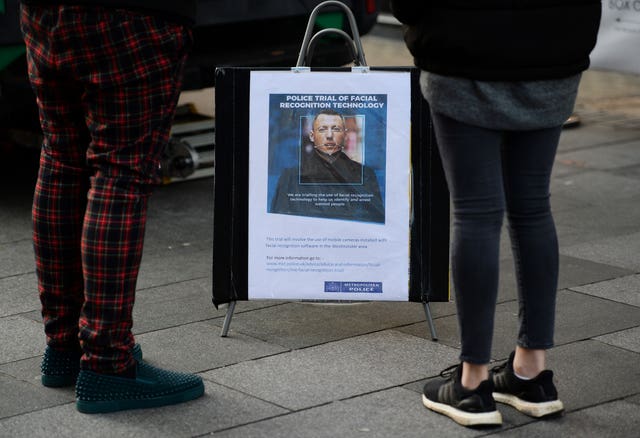
Law enforcement agencies’ use of artificial intelligence and facial recognition technology are not subject to proper oversight and risk exacerbating discrimination, peers have warned.
New technologies were being created in a “new Wild West” without the law and public awareness keeping up with developments, a parliamentary committee said.
The Lords Justice and Home Affairs Committee warned that the lack of oversight meant “users are in effect making it up as they go along”.

The cross-party group said AI had the potential to improve people’s lives but could have “serious implications” for human rights and civil liberties in the justice system.
“Algorithms are being used to improve crime detection, aid the security categorisation of prisoners, streamline entry clearance processes at our borders and generate new insights that feed into the entire criminal justice pipeline,” the peers said.
Scrutiny was not happening to ensure new tools were “safe, necessary, proportionate and effective”.
“Instead, we uncovered a landscape, a new Wild West, in which new technologies are developing at a pace that public awareness, government and legislation have not kept up with.”
Police forces and other agencies were buying equipment in a “worryingly opaque” market, with details of how systems work kept secret due to firms’ insistence on commercial confidentiality.
The peers also had concerns about AI being used in “predictive policing” – forecasting crime before it happened.
There was a danger it could make problems of discrimination worse by embedding in algorithms the “human bias” contained in the original data.
Professor Karen Yeung, an expert in law, ethics and informatics at the University of Birmingham, told the committee that “criminal risk assessment” tools were not focused on white-collar crimes such as insider trading, due to the lack of data, but were instead focused on the kind of crimes for which there was more information.
Prof Yeung said: “This is really pernicious. We are looking at high-volume data that is mostly about poor people, and we are turning it into prediction tools about poor people.
“We are leaving whole swathes of society untouched by those tools.”
The peers called for a mandatory register of algorithms used in criminal justice tools, a national body to set standards and certify new technology and new local ethics committees to oversee its use.
Baroness Hamwee, the Liberal Democrat chairwoman of the committee, said: “What would it be like to be convicted and imprisoned on the basis of AI which you don’t understand and which you can’t challenge?
“Without proper safeguards, advanced technologies may affect human rights, undermine the fairness of trials, worsen inequalities and weaken the rule of law. The tools available must be fit for purpose, and not be used unchecked.”


Comments: Our rules
We want our comments to be a lively and valuable part of our community - a place where readers can debate and engage with the most important local issues. The ability to comment on our stories is a privilege, not a right, however, and that privilege may be withdrawn if it is abused or misused.
Please report any comments that break our rules.
Read the rules hereComments are closed on this article